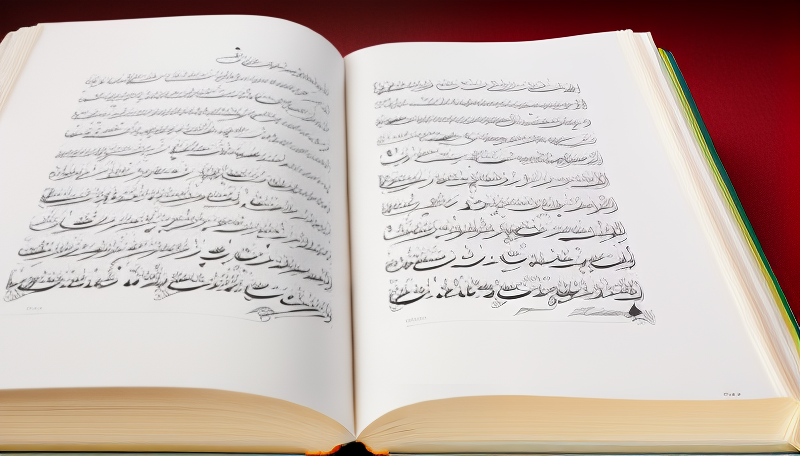Mastering Hadith Fundamentals: Pathway to Islamic Wisdom
Embrace the Prophetic Legacy: Comprehensive Essentials of the Science of Hadith
About The Course
Embark on a journey to uncover the mysteries and complexities of Hadith sciences with our foundation-level course, Mastering Hadith Fundamentals. This comprehensive program has been carefully designed to help students understand the history, development, and intricacies of Hadith sciences, including the classification of Hadith, Isnad, and the interplay of Hadith with other Islamic disciplines.
Throughout the course, students will explore key topics such as the origins and significance of Hadith, major Hadith collections, and the role of Hadith in shaping Islamic jurisprudence. Additionally, we’ll examine contemporary issues and challenges, including the relationship between Hadith and modern science, and the relevance of Hadith in today’s society.
This course is perfect for students seeking a solid foundation in Hadith sciences, whether you’re looking to expand your understanding of Islamic teachings or aiming to grow spiritually. By the end of the course, you’ll have gained the knowledge and skills necessary to confidently navigate the rich world of Hadith, allowing you to derive greater benefit and inspiration from these essential Islamic teachings.
Course Team

Shaykh Haroon Sidat
(Research Associate, Cardiff University, UK)

Shaykh Mustaqeem Shah
(Lecturer, Al Balagh Academy, UK)
16 Live Online Sessions
Duration : 4+ months
Sundays
4 pm – 5:30 pm (London, UK)
Video Recordings Available

Access to Mobile App
Personalised Feedback
Certificate
From £12.49/Month
Enrol Now
Starts on 16th July 2023
Course Fee
Pay in Full: £69.99 £49.99
Pay In 4 Installments: £12.49 per month
Registration Deadline :
30th July 2023
Al Balagh Scholarship
AlBalagh Scholarship is available for learners who cannot afford the fee.
Sessions
1.Introduction to the Science of Hadith: Origins and Significance
- The concept of Hadith and its role in Islam
- Understanding Sunnah and its relationship to Hadith
- Importance of Hadith in Islamic tradition
- Comparison between Hadith and other religious texts
- Setting course expectations and objectives
2.The History and Development of Hadith Sciences
- Pre-Islamic Arabia and the need for Hadith
- The early Islamic period and oral transmission
- The emergence of written Hadith
- Evolution of Hadith sciences through different Islamic periods
- Development of Hadith collections and compilations
3.The Authority of Sunnah: Foundation and Impact on Islamic Thought
- Defining Sunnah and its basis in Islamic theology
- Qur’an’s endorsement of the Prophet’s Sunnah
- The role of Sunnah in shaping Islamic jurisprudence (fiqh)
- Sunnah as a source of spiritual guidance and personal conduct
- Influence of Sunnah on Islamic literature, arts, and culture
4.Classification of Hadith: Sahih, Hasan, Da'if, and Mawdu
- Criteria for evaluating Hadith authenticity
- Sahih: Definition, characteristics, and examples
- Hasan: Definition, characteristics, and examples
- Da’if: Definition, characteristics, and examples
- Mawdu: Definition, characteristics, and examples
5.The Chain of Narration (Isnad) and Narrator Reliability
- Understanding Isnad and its role in Hadith authentication
- Assessing the reliability of narrators
- Types of reliable and unreliable narrators
- Common issues affecting Isnad evaluation
- Practical application of Isnad analysis
6.Mustalah al-Hadith: Terminology and Principles
- Introduction to Mustalah al-Hadith and its significance
- Key terms and concepts in Hadith classification
- The impact of terminology on Hadith comprehension
- Scholarly differences in terminology usage
- Practical examples of Mustalah al-Hadith application
7.Major Hadith Collections: Sahih Bukhari, Sahih Muslim, and Beyond
- Overview of the Six Canonical Books (Al-Sihah al-Sittah)
- Sahih Bukhari: Compilation, methodology, and impact
- Sahih Muslim: Compilation, methodology, and impact
- Other significant Hadith collections
- Contemporary Hadith collections and their significance
8.Critical Analysis and Interpretation of Hadith Texts
- Approaches to Hadith interpretation (Tafsir)
- Contextualizing Hadith: Historical and cultural considerations
- Analysing the content (Matn) of Hadith
- Comparative analysis of different Hadith versions
- Balancing literal and allegorical interpretations
9.Hadith and the Legal System: How Hadith Influence Islamic Jurisprudence
- The role of Hadith in the formulation of Islamic law
- Integrating Hadith within the legal framework
- The impact of Hadith on the development of the four Sunni schools of thought
- The role of Hadith in Shia jurisprudence
- Contemporary issues and debates in Hadith-based legal rulings
10.Hadith and Qur'anic Exegesis: Interplay and Interdependence
- Understanding the relationship between Qur’an and Hadith
- Hadith as a source of tafsir (exegesis) and ta’wil (interpretation)
- The use of Hadith in clarifying Qur’anic verses
- Examples of Hadith complementing Qur’anic exegesis
- The role of Hadith in abrogation (naskh) and specification (takhsees)
11.Key Figures in Hadith Sciences: The Legacy of Al-Bukhari, Muslim, and Others
- Imam Al-Bukhari: Life, contributions, and legacy
- Imam Muslim: Life, contributions, and legacy
- Other prominent Hadith scholars and their impact
- Scholarly debates and differing methodologies
- The role of women in the transmission and preservation of Hadith
12.Hadith and Modern Science
- Modern Science and Hadith: Challenges and Opportunities
- The role of Hadith in promoting scientific inquiry in Islamic history
- Addressing the challenges of modern science to Hadith interpretation
- Bridging the gap between faith and reason
- Contemporary scholars and their approach to Hadith and science
13.Contemporary Authentic Hadith Literature: Recent Contributions and Discoveries
- The modern approach to Hadith compilation and verification
- New findings and their implications for Hadith sciences
- The impact of technology on Hadith preservation and analysis
- Key publications and authors in contemporary Hadith literature
- Relevance of contemporary Hadith literature to modern Islamic scholarship
14.Hadith and Society: Gender, Family, and Social Dynamics
- The role of Hadith in shaping gender roles and expectations
- Hadith on marriage, family, and parenting
- The impact of Hadith on social norms and practices
- Addressing misconceptions and cultural influences on Hadith interpretation
- Promoting social justice and harmony through a balanced understanding of Hadith
15.Hadith and Ethics: The Moral Framework of Islamic Values
- Principles of Islamic ethics as derived from Hadith
- Hadith on honesty, integrity, and justice
- The role of Hadith in developing good character (akhlaq)
- Compassion, empathy, and humility in the teachings of Hadith
- Contemporary ethical challenges and the guidance of Hadith
16.Q&A and Course Conclusion: Reflecting on Lessons Learned and the Future of Hadith Studies
- Addressing common questions and misconceptions
- Reflecting on the key takeaways from the course
- Connecting the knowledge acquired to real-life applications
- Anticipating future trends and challenges in Hadith studies
- Encouraging further exploration and personal growth in the field of Hadith
Course Overview
Master the essentials of Hadith sciences and confidently identify authentic Hadith. Delve into the historical development, key figures, and interplay with other Islamic disciplines and modern science. Apply this profound wisdom in your daily life for personal and spiritual growth.


Learning Objectives
- Gain a strong foundation in the history, development, and principles of Hadith sciences.
- Acquire essential skills in identifying and analysing authentic and non-authentic Hadith.
- Understand the interplay of Hadith with Islamic disciplines, such as Qur’anic exegesis and Islamic jurisprudence.
- Develop practical strategies for applying Hadith knowledge to real-life situations.
- Understand the challenges between Hadith and modern science and learn strategies to address them.
Learning Outcomes:
- Demonstrate a strong understanding of the essential principles and methodologies in Hadith sciences.
- Develop the ability to distinguish between authentic and non-authentic Hadith using established criteria.
- Analyse and contextualise Hadith in relation to other Islamic disciplines and contemporary issues.
- Apply Hadith teachings to real-life situations for personal growth and spiritual development.
- Apply Hadith teachings to real-life situations for personal growth and spiritual development.

